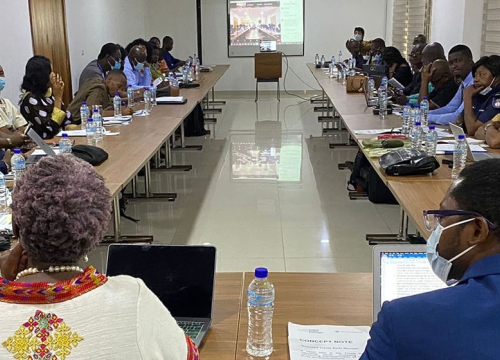Strengthening Human Rights Through Regional Engagement: Lessons from the Treaty Body Follow-Up Review Pilot Series
Event


Geneva Academy
This side-event to the 36th Annual Meeting of the Treaty Bodies Chairpersons, co-organized with the Permanent Missions of Switzerland and Tonga to the UN in New York, the Pacific Community (SPC), and the Commonwealth Secretariat aims to present the findings of the Geneva Human Rights Platform's Treaty Body Follow-Up Review Pilot Series. The event will inform improvements in the follow-up review procedure as part of the new eight-year cycle for full reviews. The initiative, conceived as corollary to the broader treaty body strengthening process, involved pilot follow-up reviews in Sierra Leone (2021), Grenada (2022), and the Pacific Region (2023). Specifically, the objectives included assessing the effectiveness holding follow-up review sessions at the national and regional levels, fostering closer engagement with national and local stakeholders to ensure the practical implementation of human rights obligations, and identifying best practices and challenges in the follow-up process.
These pilots tested two models: national-level and regional-level follow-up reviews. National-level follow-up reviews provided in-depth engagement with local stakeholders, fostering cooperation among national actors and improved understanding of TB expectations. They also allowed TB members to grasp real situations, leading to more relevant and context-specific recommendations. Regional follow-up reviews enhanced broader cooperation and the sharing of best practices among multiple countries. A key aspect of these reviews was the emphasis on maximizing the use of UN regional hubs, which facilitate improved cooperation and accessibility for several countries in the region. This approach not only strengthened accountability but also ensured more context-specific and effectively disseminated TB recommendations. Discussions will cover the pros and cons of both approaches, guiding the development of a more effective and context-sensitive follow-up review procedure, enhancing the overall efficiency and impact of the UN human rights treaty bodies.
Opening remarks
- Jeanett Vea, Chargé d’Affaires ad interim, Permanent Mission of Tonga to the United Nations
Moderator
- Miles Young, Director, Human Rights and Social Development Division, Pacific Community - SPC
Panel
- Representative from Permanent Mission of participating country to the pilot series (Sierra Leone, Grenada, Fiji, Vanuatu, Tonga)
- Ann Skelton, Chairperson of the Committee on the Rights of the Child
- Domenico Zipoli, Project Coordinator, Geneva Human Rights Platform
Light Lunch
A light lunch will be provided before the event.








